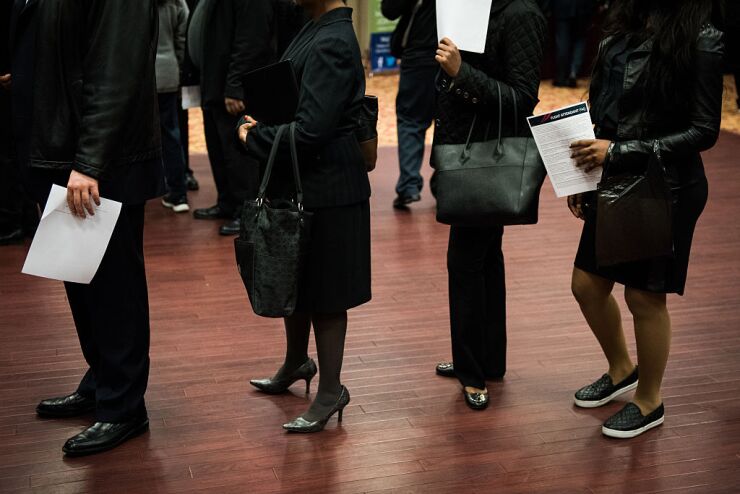Diversity and inclusion
Eighty-five percent of adults with IDDs are unemployed, despite being willing and able to work, according to data from Creative Spirit, an organization dedicated to providing integrated employment opportunities for people with these kinds of disabilities. The organization points to two barriers: a lack of pipeline for candidates in a specific industry and a lack of staff with knowledge of how to train and manage these employees.
Read More:
Creative Spirit works with employers to match individuals with IDDs to job opportunities and partnered with Voya Financial, part of the 12% of businesses actively working to hire workers with IDDs. Through its Voya Cares program, the company delivers additional support and financial planning resources to these individuals.
“Voya focused on bringing people with disabilities into our office ever since our DE&I office was established,” says Lisa Fleury, senior vice president of talent acquisitions and HR operations at Voya. “It was always one of our communities to reach out to. It starts at the top and when our leaders walk the walk, that’s when our employees and hiring managers start to take notice.”
Read More:
One of the biggest challenges to hiring people with IDDs is the application process, Fleury says. The general application process consists of standardized questions employers expect to be answered a certain way. However, because people with IDDs think differently, their understanding of the questions might be different than someone without an IDD — and their answers could cause a hiring manager to exclude them from consideration.
Hiring candidates with IDDs can help employees bring different perspectives to the table. But in order to reap the benefits of hiring from this talent pool, employers need to reconsider how they search for prospective employees. Specifically, hiring managers need to think about how they are presenting questions to interviewees with IDDs, says Laurel Rossi, co-founder of Creative Spirit.
Read More:
“We started with a people-first language and we've gone on to talk about different ways to ask questions,” Rossi says. “If you start with a question that is open-ended and the answer is too short or too general, redirect and ask that question in a different way. Be very specific with what the ask is, so instead of saying, ‘tell me about your job,’ you say, ‘when you were in this role, what do you do to deliver on your goals for the day.’”
Read More:
Educating managers on how to engage with and support folks with IDDs is step one toward unlocking an enormous and untapped talent pool. Working with organizations like Creative Spirit can help employers provide the necessary resources to both recruiting and retaining these employees, and help both parties feel empowered and comfortable throughout the hiring process and beyond.
Read More:
“One of the benefits of hiring an individual with an IDD is that throughout their life they’ve had to find solutions by thinking differently,” Fleury says. “It's only through that diverse thinking that you will [find solutions] that you would have never thought about on your own.”






